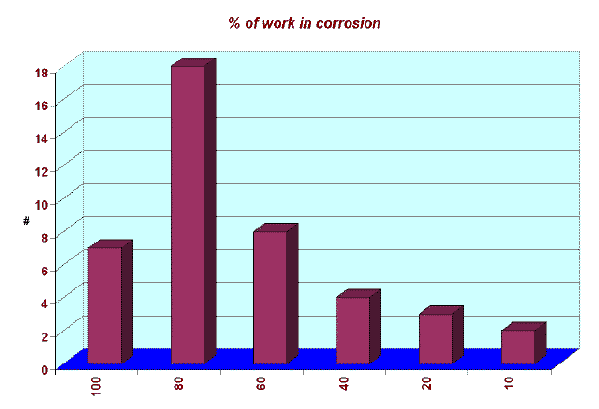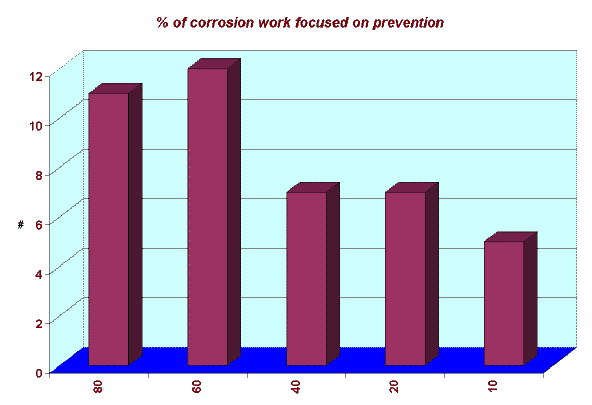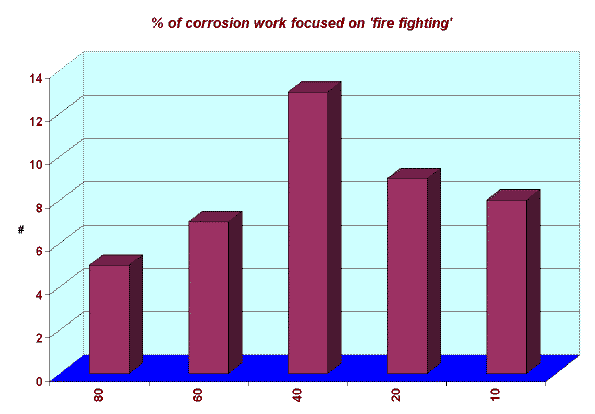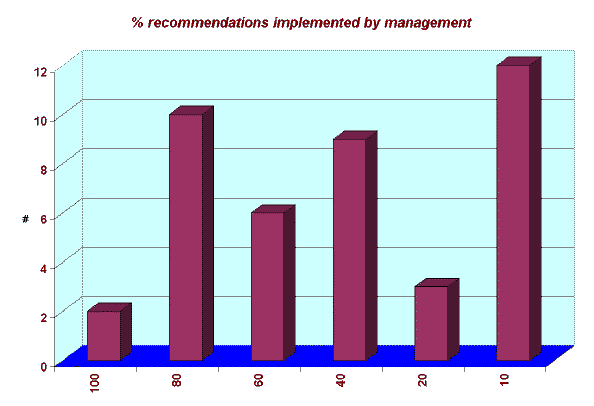
 |
In his 1952 paper, F.L. LaQue stretched the importance of basic knowledge for performing good corrosion engineering and the requirements of reliable information sources. These concepts were the basis of the first two surveys to define the Portrait of a Corrosion Engineer.
LaQue also wrote, in that landmark paper, that "While corrosion has nothing but negative aspects from most points of view, money spent to enable a corrosion engineer to control corrosion will be returned many fold and will represent one of the most profitable investments that can be made."
In this fourth survey the Corrosion Doctors tried to define the delicate balance between managing corrosion and managing managers, a challenge that corrosion specialists have to face on repetitive occasions, i.e. the task of convincing superiors that managing corrosion is a profitable expenditure. In other words, how easy do our corrosion specialists think it is to convince superiors, customers and other non specialists that managing corrosion has a many fold return as LaQue seemed to believe.
This survey was carried out between November 2 and 23 1999 by invitingthe members of two very active corrosion electronic discussion groups (UMIST and NACE International) to participate and answer simple questions by stating their opinions on options provided. The following results summarized the answers provided by forty-two participants, totaling 700 person years of field experience.
First question: "What percentage of your work is (or was) related to corrosion?"


Third question: "What percentage of your corrosion work is (or was) squarely pure fire fighting?"

